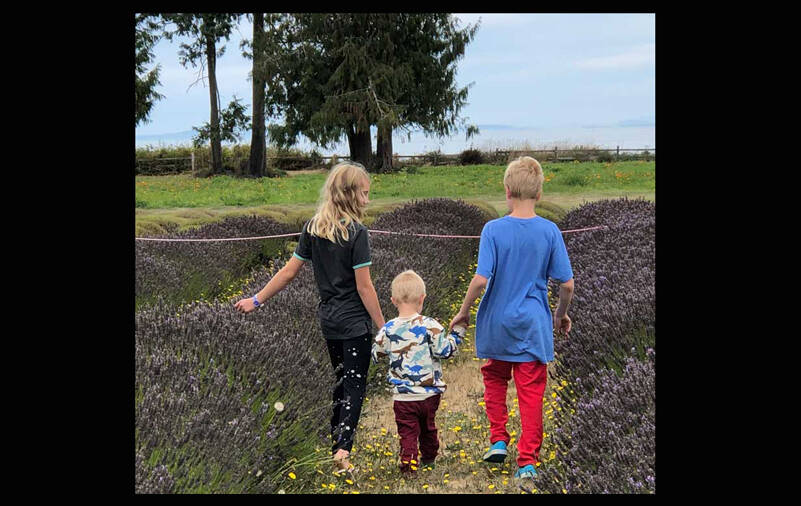By Morf Morford, Tacoma Daily Index
For the past decade or so, a common phrase to describe the often precarious balance/clash/distinction between work and private/personal life has been “work hard, play hard”. This became a phrase used to represent a good work-life balance, which basically means putting an approximately equal amount of attention to reaching professional goals and personal goals.
Some companies and agencies prioritize the health and well being of their workers precisely because a happy worker, presumably, will also be a more productive worker. Those with a good work-life balance typically do well at work and they also dedicate time and energy to develop and maintain a thriving social life and tend to incorporate healthy habits in their daily lives.
Work from home, play at home?
As with everything else, the 2020s convoluted the already blurry line between work and personal life.
The work from home (WFH) movement upended work schedules and expectations as remote working became more acceptable and common.
Thanks to technology, it’s easier than before to mix personal and professional lives – and more difficult to keep them separate.
People may bring work to home or reply to work emails long after or even far outside of standard working hours, which makes it harder, if not impossible, to achieve anything like a balance/distinction between work and personal life.
What does “play” mean?
If you do an online search for “work hard, play hard”, you are likely to find article after article on work and dealing with stress and burn-out. In other words, the vast majority of articles related to “work hard, play hard” focus on work – and recovering from it – not play.
What do you do?
The question “What do you do?” has, for many years, been a common way that those traveling or meeting people initiate conversation. The clear assumption is that what we “do”, our work, employment and vocation, to a large degree, define us.
And it does. Or at least it has. But should it?
What if, instead of asking “What do you do?”, what if we asked “What do you like to do?” or maybe “If you didn’t have to work, what would you be spending your time doing?”.
In other words, what we like to do, or what we enjoy doing with others – without compensation – tells us far more about ourselves than any job title.
One article on life/work balance had a section that included this; “set up some personal goals. You can use the SMART goal method to ensure your goals are Specific, Measurable, Achievable, Relevant and Time-based. For example, if you want to learn to play the piano, you can set your goal as Take a piano class every Saturday and practise every day for 30 minutes.” (https://hk.indeed.com/career-advice/career-development/work-hard-play-hard). I don’t know about anyone else, but that just sounds like “work” to me.
Learning, especially something one chooses to learn, is of course enjoyable, but if you look at how creative and healthy children play, or even how they decide to play, most of them thrive in unstructured, deliberately unfocused explorations and encounters with new materials, partners and situations.
Play is what we do
Anyone who has worked with, or observed, or has children knows that they play – that is literally what they do. Play is how they learn, how they create and how they relate – especially with other children. And I would argue that being able to “play” with others – at any age – is crucial to success and cooperation.
Plays well with others
Play, some argue, is what makes us human (check out this series online: https://petergray.substack.com/p/3-why-do-we-play).
Play is how we learn basic (and not so basic) skills. But more than that, play is how we learn who we are and how others – even those very different from us – interact with us and learn from us – and, of course, how and what we might learn from them.
More than any life/survival skills, play allows us, maybe even forces us, to learn and become accustomed to the necessity of cooperation with one another. Even those very different from us.
Play, especially improvised play, by definition, brings people together, forces them to establish agreed-upon rules and guidelines and creates the enduring friendships and mutual trust that are essential for sustained, productive and peaceful human existence.
It’s all in who you know
In most situations, whether it is a coveted party invitation or a work related opportunity, a common reference point is “It’s all in who you know”. This is mostly true – but in some cases, it doesn’t really matter “who” you know, it is how well you got along with them.
If someone wants to help you succeed, they probably will. But the opposite is also true – that if someone you “know” does not want you to succeed, they could set impediments in front of you that you will probably never see.
In other words, it is not so much who you “know”, it is people you have “played well” with that can make a difference in your life and career.
As Peter Gray put it; “If you grow up playing, if you view all of life in a playful way, if you see everyone in your social group as playmates, then there is little or no room for dominance behavior. As I have been contending over the last three letters, social play and dominance are incompatible.” (https://petergray.substack.com/p/21-the-play-theory-of-hunter-gatherer)
A business model based on play – non-hierarchical exploration and encounter with ideas, materials, and lots of “what ifs” just might lead to discoveries no one would come with by themselves.
And it might even be fun. And productive.





